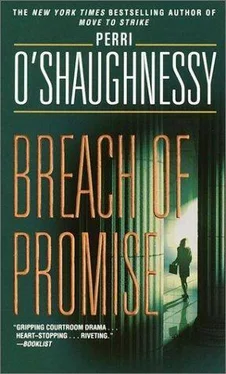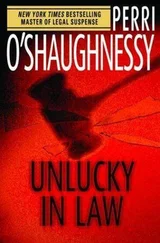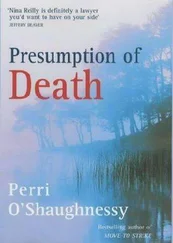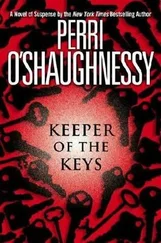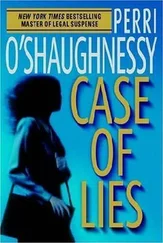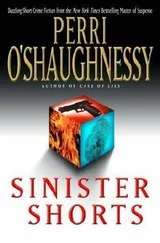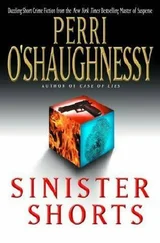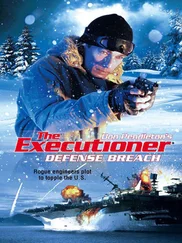Perri O’Shaughnessy - Breach Of Promise
Здесь есть возможность читать онлайн «Perri O’Shaughnessy - Breach Of Promise» весь текст электронной книги совершенно бесплатно (целиком полную версию без сокращений). В некоторых случаях можно слушать аудио, скачать через торрент в формате fb2 и присутствует краткое содержание. Жанр: Триллер, на английском языке. Описание произведения, (предисловие) а так же отзывы посетителей доступны на портале библиотеки ЛибКат.
- Название:Breach Of Promise
- Автор:
- Жанр:
- Год:неизвестен
- ISBN:нет данных
- Рейтинг книги:3 / 5. Голосов: 1
-
Избранное:Добавить в избранное
- Отзывы:
-
Ваша оценка:
- 60
- 1
- 2
- 3
- 4
- 5
Breach Of Promise: краткое содержание, описание и аннотация
Предлагаем к чтению аннотацию, описание, краткое содержание или предисловие (зависит от того, что написал сам автор книги «Breach Of Promise»). Если вы не нашли необходимую информацию о книге — напишите в комментариях, мы постараемся отыскать её.
Breach Of Promise — читать онлайн бесплатно полную книгу (весь текст) целиком
Ниже представлен текст книги, разбитый по страницам. Система сохранения места последней прочитанной страницы, позволяет с удобством читать онлайн бесплатно книгу «Breach Of Promise», без необходимости каждый раз заново искать на чём Вы остановились. Поставьте закладку, и сможете в любой момент перейти на страницу, на которой закончили чтение.
Интервал:
Закладка:
Today they had dressed up. They seemed self-conscious, dignified, impressive. Nina wondered if her impression was the result of the exaggerated part they played in her life right now. But no, she had seen it in other trials in which she had sat in the audience, this reassuring aura of decency that came upon the people about to render a verdict. They represented the American public, and they knew it.
In the jury room, would they remain as impassive, as decent? She sat straight-backed with Lindy, Winston, and Genevieve at her table, and she tried to project that same decent aura.
Milne took a sip of water and wet his lips. In a measured tone, he said, “It is now my duty to instruct you on the law that applies to this case. It is your duty to follow the law.”
He cleared his throat before resuming. “As jurors it is your duty to determine the effect and value of the evidence and to decide all questions of fact. You must not be influenced by sympathy, prejudice, or passion.”
He went on, explaining that the burden of proof was upon Lindy as the party bringing the action. He advised the jury that they must find that a preponderance of the evidence supported one side or the other.
During all this, he read from form jury instructions as modified in his conferences with the lawyers. Not one unplanned word could be spoken, or the verdict might be overturned on appeal. The instructions were written in the plainest English possible, but many of the words and concepts were still new to the jurors and looks of incomprehension flitted across their faces as Milne went on in a voice that never varied and never emphasized one instruction over another.
“In an implied-in-law contract, or quasi-contract as it is sometimes called, a duty or obligation is created by law for reasons of fairness or justice. Such duty or obligation is not based upon the express or apparent intention of the parties.
“A contract may be oral. An oral contract is as valid and enforceable as a written contract.”
And now Milne came to a couple of special instructions. Riesner had fought for the first one, a civil statute which could be interpreted to mean that Lindy couldn’t recover anything just because Mike had promised to marry her and broken that promise:
“No cause of action arises for breach of promise of marriage,” Milne went on with his evenhanded delivery.
Would the jurors think Lindy’s whole case revolved around that? They might. Nina shuddered and glanced at them, reading nothing from their expressions.
Then it was Lindy’s turn. Milne moved along to the hoary old statute Nina had dug up and worked hard to get into the instructions, section 1590 of the Civil Code. It had been enacted in courtlier times, to assure the return of marital dowries after broken engagements. Milne had seen that it could apply and overruled Riesner’s outraged objections.
“Where either party to a contemplated marriage in this state makes a gift of money or property to the other on the basis or assumption that the marriage will take place, in the event that the donee refuses to enter into the marriage as contemplated or that it is given up by mutual consent, the donor may recover such gift.”
Now Riesner was wincing. Again, the jury would have to believe Lindy, not Mike or the written language of the separate property agreement. But if they felt Mike had dangled the carrot of marriage to get her to sign the agreement, then she had the right to take back her “dowry,” namely the company and any other asset they shared.
Was the jury utterly mystified by all this talk of donees and donors? Were these people smart enough to reason their way through this?
Milne droned on about contracts at prodigious length before moving to the concluding instructions. “Each of you must decide the case for yourself, but should do so only after considering the views of each juror. You should not hesitate to change an opinion if you are convinced it is wrong. However, you should not be influenced to decide any question in a particular way simply because a majority of the jurors, or any of them, favor such a decision.
“… Remember that you are not partisans or advocates in this matter…”
Milne took a healthy swig of water this time. His vocabulary for ten days had consisted mainly of “overruled” and “sustained,” so this lengthy speech was putting a strain on his vocal cords. Luckily, he was close to the end.
“When you retire, you shall select one of your number to act as foreperson. As soon as any nine or more jurors have agreed upon a verdict, have the verdict and answers signed and dated by your foreperson and return with them to this room.”
Milne paused. The courtroom shook itself from its swoon. He put down the last paper, and said in a benign voice at odds with the robotic delivery of the previous two hours, “It being late in the day, you will return to court tomorrow at nine a.m. to begin your deliberations.”
With nary a rustle, the twelve people chosen to shape the future of a number of other people in the courtroom filed out the door behind them, followed by the two alternates.
Nina put her arm around Lindy. “This is it,” Genevieve said, her face pale.
The wait had begun.
BOOK FOUR. VERDICTS
The first perversion of the truth effected by one
of the individuals of the gathering is the starting
point of the contagious suggestion.
-Gustave le Bon
23
›Click‹
Jury, Day One, Morning:
The seven men and seven women find seats, with the two alternates sitting away from the table. For about twenty minutes, they dither over a foreperson. Mrs. Lim gets strong backing from half. Clifford Wright emerges as the other possible leader. By the second vote, someone switches to Wright.
Cliff: You all know why we’re here. We’ve listened to testimony for nearly ten days now, and we’ve had more than enough time to think, right?
A titter of agreement.
Cliff: And during our breaks, without doing anything the judge didn’t want us to do, I know a few of us have felt each other out, just to get an idea of where we stand. This hasn’t been easy, and I know a couple of times tempers have flared.
Man: I’ll say.
Cliff: But we’re in the home stretch, folks. Let’s be smooth and focused. I think it’s a good idea to take a straw vote right off the bat, see if by some miracle we’re already in agreement.
Some murmurs of assent.
Man: The judge said we should talk about this first.
Woman: Yes, what if we get a verdict on the first vote? I don’t think that’s the way to do the job right.
Man: Why waste time if we don’t have to? I knew how I would vote the minute those lawyers finished their opening statements.
Cliff: Even if we do have a majority this is not a vote that will count. We each get to have our say first, like the judge said.
They vote on slips of paper, anonymously. Clifford Wright reads off the answers one by one. Eight think Lindy Markov should win. Four oppose her claim.
Wright: Well, now, we’ve almost got a majority. You all remember, we only need nine on this civil case.
Man: So the gals went with hearts, not brains.
Woman: And most of the men were too stupid to use either one.
Wright: Let’s not bicker, folks.
Man: It’s more fun to think of this as the war between men and women. It kind of encapsulates all the issues. Romantic fancies and the greed of a woman…
Woman: Betrayal, power, and the ego of a man. Only this time, the women are winning for a change!
Wright: Let’s organize ourselves. Our next step seems to be to go around the room, give people a chance to say a little about who they are and why they’re thinking a certain way. We’ll go clockwise for discussions. That puts you first, Mr. Binkley. Is everyone okay with first names? I’m terrible with names.
Читать дальшеИнтервал:
Закладка:
Похожие книги на «Breach Of Promise»
Представляем Вашему вниманию похожие книги на «Breach Of Promise» списком для выбора. Мы отобрали схожую по названию и смыслу литературу в надежде предоставить читателям больше вариантов отыскать новые, интересные, ещё непрочитанные произведения.
Обсуждение, отзывы о книге «Breach Of Promise» и просто собственные мнения читателей. Оставьте ваши комментарии, напишите, что Вы думаете о произведении, его смысле или главных героях. Укажите что конкретно понравилось, а что нет, и почему Вы так считаете.
